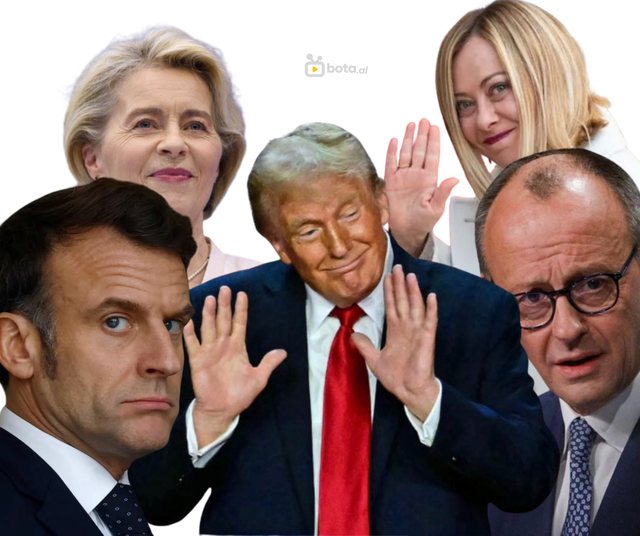
By Paolo Gentiloni/ Surprised, uncertain, lost, Europeans helplessly follow the tsunami that has shaken the world order for a month. They are orphans of the West.
America remains a great democracy, of course. And the tide, sooner or later, will recede: there are institutional counterweights, Congress, the media, the midterm elections in twenty months. For this reason, it is right to remain committed to our old transatlantic relationship. But in the meantime, it is necessary to face a new world.
The pillars of the world order that has prevailed for eighty years are shaking: those of relations between states sanctioned by the UN Charter, the economic-financial ones built on the Bretton Woods institutions, the Western flags of freedom and the rule of law, the multilateral headquarters for regulating world trade, poverty reduction, climate transition. Things of another time, now ignored or left in the arms of nostalgia.
For President Trump, it seems that in the golden age he has promised, the only things that matter are sovereign interests. It is not known whether there is a genuine strategy behind this will to impose the law of the strongest, but I fear that the autocrats will be the ones who will celebrate it the most.
Most Europeans think differently. They know that this world order needs updating, but not trampling underfoot, and that Europe has a great responsibility. We must urgently take up this responsibility, now that the elections in Germany have also confirmed that, despite the strength of the far right and the fragmentation of the Bundestag, the overwhelming majority of voters are on the side of Europe.
Today, three years after the start of Russia's bloody invasion of Ukraine, Ursula von der Leyen is in Kiev with other European leaders. And it is clear that the first test of our will not to play the role of sleepwalkers will be precisely our support for Ukraine.
Other European leaders, the first among them today Macron, will be in the White House these days. In Kiev and in Washington, clear words are needed. For the European Union, the dictator is not at all Zelensky, who continues to demonstrate courage in the service of his country; and the aggressor is not at all Ukraine.
New European aid packages, including military ones, and a willingness to facilitate any negotiations in cooperation with the United States, but only for a just and lasting peace, should be put on the table. A surrender, on the contrary, would mean the acceleration of new wars on European soil.
Alongside support for Ukraine, the second priority is common European defense, a prospect that a Trump presidency could finally make feasible. It is not enough to spend a few dozen percentage points more of national GDPs, because if fragmentation and waste are not reduced, we will have neither a truly European defense industry nor a truly European defense.
It makes no sense to pit defense and development funding against each other, because if we want a lasting peace, we will have to defend it, primarily ourselves; and if we are unable to defend ourselves, our welfare system will also be at risk. Common purchases and European defense systems are needed, with the aim of a common defense that complements NATO.
Ukraine and common defense are not the only challenges for the European Union. The recent reports by Mario Draghi and Enrico Letta have drawn up an excellent agenda for the priorities of a competitive single market. And in the background there even seems to be some glimmer of the future, as when the candidate for chancellor, Friedrich Merz, alludes to a kind of Europeanization of the French force de frappe. Perhaps, I would add, accompanied by a beginning of Europeanization of the Budget and the Treasury. A scenario, still distant today, that could reopen the possibility of a great exchange like the one that in the nineties made possible the reunification of Germany and the birth of the euro.
The West's darkest hour could be – should be – Europe's hour. In European countries, the forces against the Union are a minority, but a far from silent minority. The supporters of the Union, on the contrary, are a large majority, but they have difficulty making their voices heard. And often, their voice seems more critical than supportive of Europe.
Now the weakness, the delays, the divisions between countries are more than obvious. Equally obvious is the need to reform the Union and to break out of the cage of autocracy. But without Europe, without its commercial power, without its social model, without its values of freedom, we will simply be at the mercy of the tsunami. And if this is truly a difficult moment, perhaps it is time to stop the constant complaints about the limitations of the EU. I would declare a moratorium on self-deprecation, to unite, at least in these months, around our common, complicated but extraordinary European destiny. To integrate our national patriotism with a healthy European patriotism. Even adopting a slogan used on the other side of the Atlantic: right or wrong, it's my Europe.
Originally published on bota.al
















































